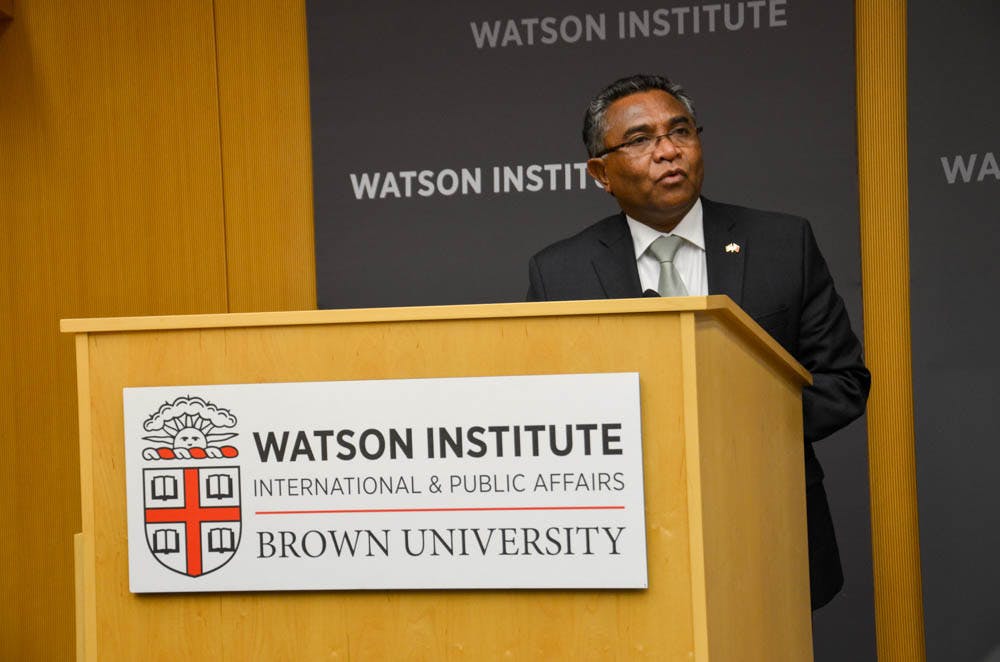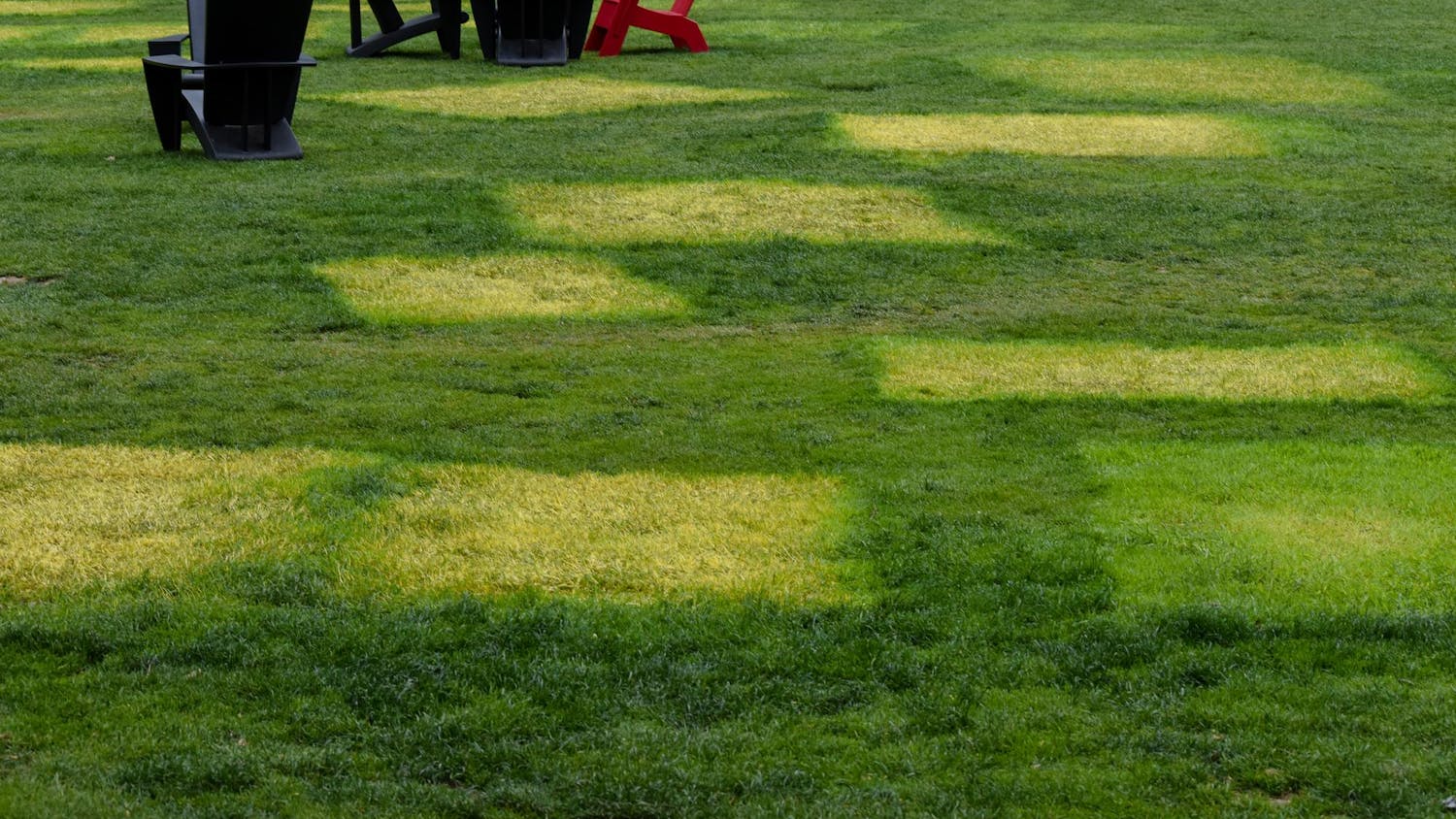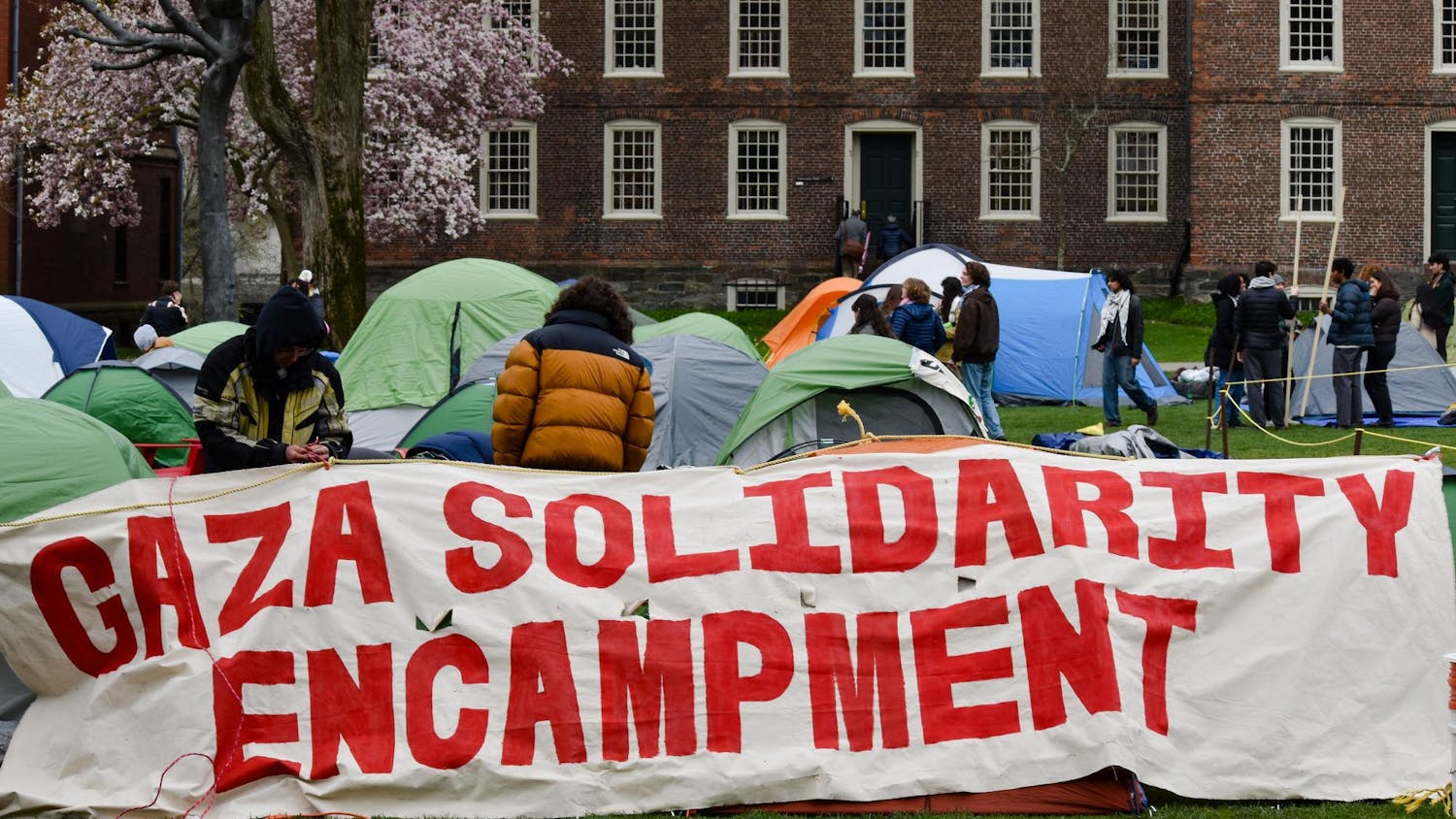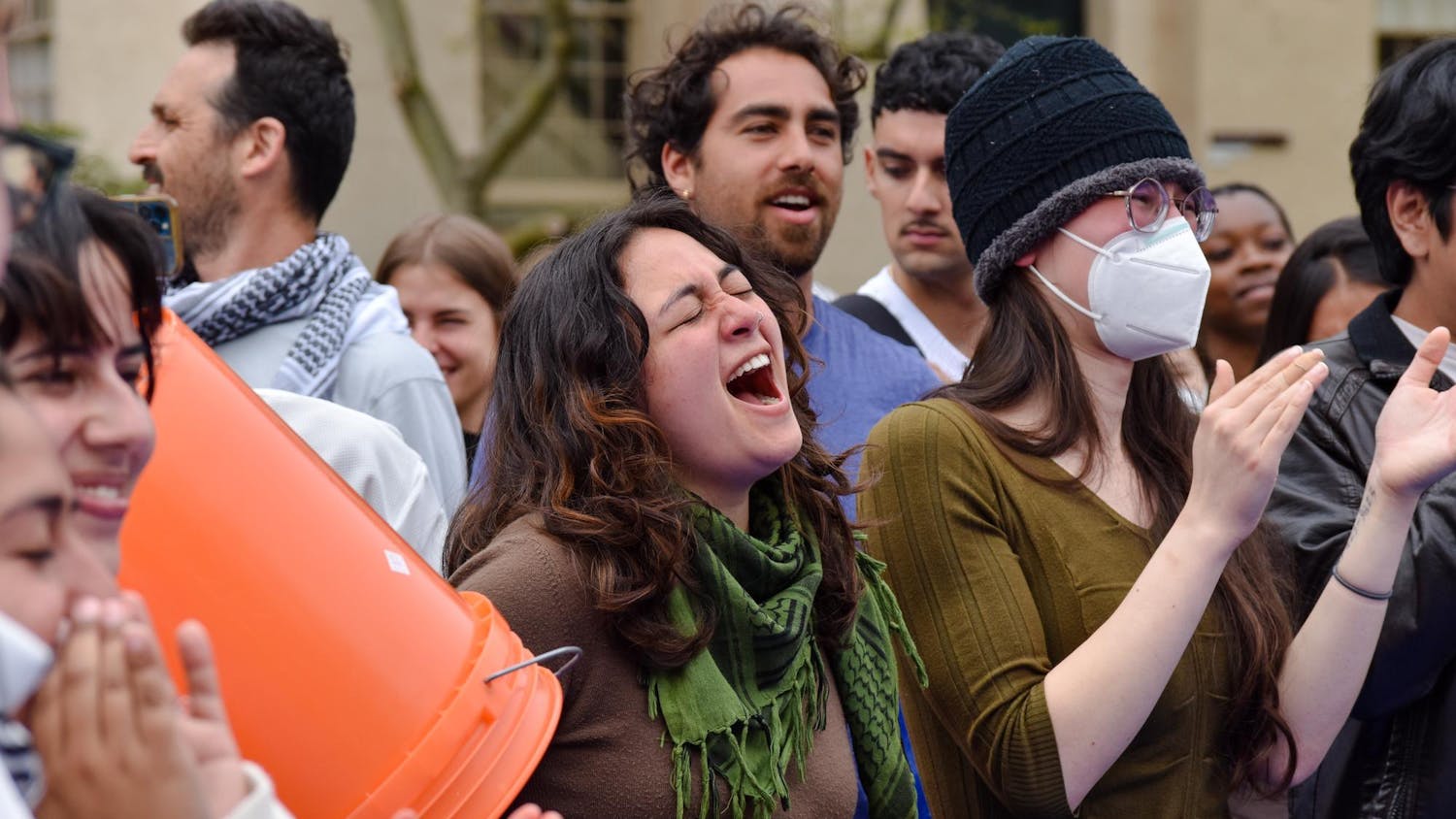In the 1990s, Brown’s campus was a hotbed of activism on behalf of Timor-Leste, the Southeast Asian island then occupied by — and subject to human rights violations committed by — Indonesia. Over 15 years later, the leaders of what is now the Democratic Republic of Timor-Leste arrived in Providence to reflect on the transition from a political movement to a sovereign nation.
In a roundtable hosted by the Watson Institute for International and Public Affairs titled “Back to Brown: Reconnecting with Timor-Leste,” Edward Steinfeld, director of the institute, and Robert Blair, assistant professor of political science and international and public affairs, were joined in dialogue by Timor-Leste’s Prime Minister Rui Maria de Araújo and founding father Xanana Gusmão.
Perhaps more than anyone else, Gusmão’s life is intertwined with that of his young nation. Gusmão organized the resistance movement against the Indonesians, working from his jail cell after being sentenced to life in prison in 1993. When the country was born in 2002, he was elected its first president. Gusmão was later elected prime minister and is now minister of planning and strategic investment, as well as international emissary for his country, development and democracy.
It is this spirit of internationalism that brought the envoy from Timor-Leste to Providence. “There has always been a special connection between Rhode Island and Timor-Leste,” Araújo said. “It is embodied by professors and students here at Brown who fought and fought to put Timor-Leste on the national consciousness of the (United States) during the years when we were under occupation.”
During the peak of the tiny island’s resistance — which displaced about one third of Timor-Leste’s population — Timorese leaders were aware of the expressions of concern surfacing around the world, Araújo said. This solidarity movement took hold in Rhode Island, where then-U.S. Sen. Claiborne Pell, D-RI, and then-U.S. Rep. Jack Reed, D-RI, advocated for the United States to lend its muscle to the restoration of Timor-Leste’s independence.
“Early this year, when I finally had a chance to thank … Reed in person, he told me the story of how he first heard about Timor-Leste’s struggle when a group of students and professors from Brown came to see him at his little district office in Cranston,” he said. “So let me at last say, as the prime minister of free Timor-Leste, thank you, Brown University.”
The nation — which was declared independent after a 1999 referendum, placed under a U.N. transitional government that year and officially established as a constitutional government in May 2002 — is nearing its 15th birthday. But given the rapid growth of the country’s budget and the success of its democracy, Timor-Leste shows that “the age of a country doesn’t have anything to do with wisdom that country can pass on to us,” Steinfeld said.
Today, the nation faces a myriad of challenges, including “crippling uncertainty for the economy,” which is extremely dependent on oil reserves in the surrounding waters; a lack of critical infrastructure, largely due to the slash-and-burn wrought by the Indonesians before relinquishing control and a conflict with Australia over maritime borders, which will be mediated by The Hague in the upcoming year, according to a decision announced this week. But as evidenced by the Hague intervention, international systems have been and must remain invested in the nation, Araújo said.
Many in the post-Cold War world questioned the relevance of international institutions, Araújo said, offering the words of former U.N. Secretary General Kofi Annan as a rebuke to these doubts: “Never before has the world united with such firm resolve to help one small nation reestablish itself,” Araújo said.
Yet scholars are hesitant to label the Timor-Leste intervention a complete success. There have been only a few other instances where the United Nations has “exercised such a heavy hand,” Blair said, noting that the United Nations failed to adapt to indigenous institutions — particularly when it came to traditional systems of adjudication — and that the U.N. peacekeeping mission did not end until 2012.
Under a certain light, the U.N. forces could be seen as an extension of the legacy of occupation, Gusmão said. “Yes, it was the first time that (the United Nations) played this kind of role in a nation,” he said. “In the beginning we were making noise — ‘are you coming to colonize us?’ There was a group of (East) Timorese (citizens) who said, ‘We kick out the Portuguese, (who occupied the nation for over 200 years,) we kick out the Indonesians, and now we are going to be colonized by (the United Nations).’”
But the nation’s first president — whose serious reflections turn animated when he speaks to the future, becoming especially fiery when he exhorts young people to action — is a believer in the necessity of internationalism and the potential for peace.
“When South Sudan, now the youngest state in the world, got independence, we sent a mission to participate in celebrations,” Gusmão said. Once South Sudan started to see violence, Gusmão himself visited the country to offer counsel. “When (Timor-Leste) came in 2006 to a crisis, we did everything to avoid it. They didn’t. Now it is a mess with one million refugees.”
Throughout a day of discourse — which included a lunch discussion among the visitors, University faculty members, graduate students and undergraduates — the ideals of diplomacy, peace and international institutions poured forth.
“These are the values (that) animate my young country,” Araújo said. “I am here speaking for not just a young country, but a young democracy that wants to move from being a post-conflict state to being a successful state; a country that wants self sufficiency, not charity; a country that believes in the rule of law.”
“Your actions bear all of our hopes and aspirations for what development can deliver and what justice can deliver,” Steinfeld said.
Speaking to students as he left the room, Gusmão said: “The world’s future is in your hands and in your brains.”





